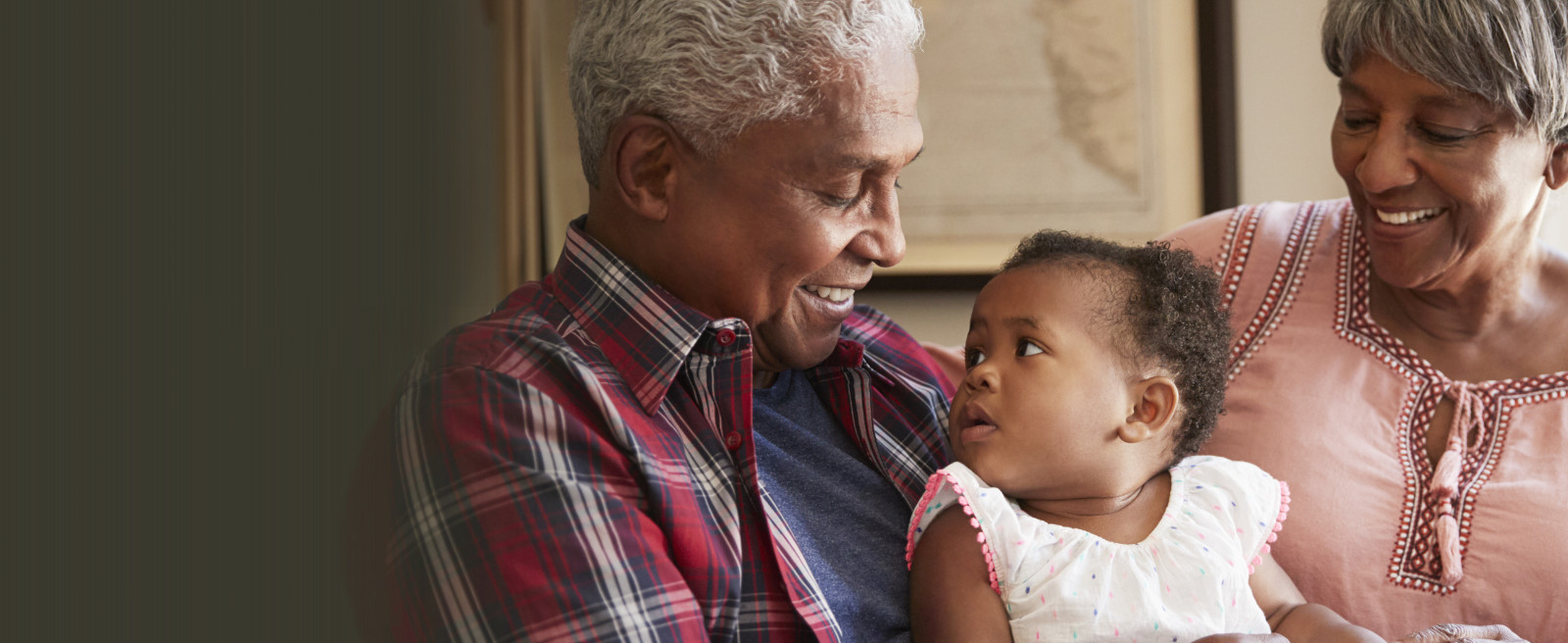Find Joy. No Regrets: Living with Early-Onset Alzheimer’s
Lisa Marshall’s husband, Peter, was diagnosed with early-onset Alzheimer’s at 53 in April 2018. He died in December 2021 at the age of 56. For most of that time Lisa was his sole caregiver. She has written extensively about her experience on Facebook, Instagram and in a new book, “Oh, Hello Alzheimer’s!” We sat down with her to talk about how she was able to still find joy while helping her husband live with early-onset Alzheimer’s.

Since Peter didn’t remember that they were married, he proposed again.
As the disease progressed, Peter forgot many monumental things in his life. However, his connection to his wife remained, and since he didn’t remember that they were married, he proposed again. Of course, she accepted and the two held a vow renewal ceremony.
Your Facebook posts about your caregiving journey have attracted close to 30,000 followers. Why do you think you’ve gotten such a response?
LISA: “Because the story I’m telling is very real and raw and I didn’t sugarcoat anything on the way. There’s little information about young onset, under 65. Peter was just 56 when he died.”
Tell me about the signs of the disease you said you only recognized in hindsight.
LISA: “In the beginning I didn’t want to face what was happening. I chalked it up to natural aging. He would forget his phone when he went to work or his wallet. Just general forgetfulness. The second thing that happened was his word bank started to become depleted. He couldn’t remember the word so he would describe it, ‘You know the thing we get on to see the kids and we take our luggage.’ He meant the plane. That was the straw that broke the camel’s back about what was going on. I took him to a doctor.”
After he was diagnosed with early-onset Alzheimer’s, you were Peter’s only caregiver, eventually retiring from your career as an advertising saleswoman when he could no longer be left alone. When your burnout became overwhelming, you gave yourself a two-week respite by placing Peter in a long-term care facility.
LISA: “My Plan A was to care for him at home. My Plan B was to care for him at home and My Plan C was to keep him at home. Plan D, if I couldn’t do it alone anymore, was to hire help, which I did about three months before Peter died. I toured eight different memory care facilities. I wanted to be prepared should I need it.”
Looking back, would you do anything different in your years of caregiving?
LISA: “I wish I had gotten a diagnosis sooner and wish I would have called hospice sooner to take advantage of their services. Once I had, it was a huge relief. At least begin the conversation. If you don’t qualify, you will have a baseline to compare later.”
What were some of your coping mechanisms?
LISA: “Self-care is paramount. The problem with self-care is feeling guilty for taking time away from home. I’d feel uncomfortable for getting my toenails done. You really have to concentrate on being diligent about asking people for help. I developed my Four A’s:
ACCEPT help from people who are offering.
ASK for help.
ARTICULATE exactly what you need–time to take a shower, to take a walk for 20 minutes or if you’re too exhausted to cook ask someone to bring you some of their dinner, if they make extra.
ACTUALLY: Saying ‘actually’ gave me a second to pause. It gave me a chance to come up with something I needed. Saying the word forced me to ask for help.”
How did you change? Were you always patient? If not, how did you develop patience?
LISA: “I wasn’t always so patient. I’m a much different person from before my journey. I focus on finding joy and vibrating positive energy to other people. I don’t stress things that don’t matter. I go through life enjoying things and not in a manic pace. That doesn’t have to be.”
Tell me about your inspirational tattoo, “Find Joy. No Regrets.”
LISA: “It was close to the end, a few months before Peter died. That had been my motto all along. I wanted to find joy, not just focus on this horrible thing that happened to us. Not that I wasn’t depressed at times because I was, but I enjoyed holding hands with Peter, taking walks, finding joy where we can. For ‘no regrets,’ if I was feeling impatient and may have been ready to snap at Peter, then I was doing things too fast; I had too much on my plate. Then I got rid of those things in my life that were making me too busy. I wanted to be the gentlest with Peter. He wasn’t trying to give me a me a hard time; he was having a hard time.”

It was touching that Peter asked you to marry him, not knowing you were already his wife. How did your feelings in your vow renewal compare to your first wedding?
LISA: “Totally different. I expected it the first time around because it was a natural progression of our relationship. I was so flattered he fell in love with me again. It was also heartbreaking because he didn’t remember our first wedding and our memories. It was terribly mixed emotionally, both good and bad.”
What three pieces of advice do you hope readers will take away from your book?
LISA: “I’m hoping people will get rid of guilty feelings and care for themselves. You can’t care for your loved one if you are empty. Second, make your mantra to have no regret. When you’re not patient, get help as soon as you can afford it or ask family and friends so you can get a break. Third, when you’re dealing with medical experts you’ve got to be your own advocate. If something doesn’t sit right with you in the doctor’s office, be a fierce warrior. You have to advocate for your loved one’s care.”
Related Articles and Resources
View additional facts and tips related to Alzheimer’s and dementia caregiving here.






